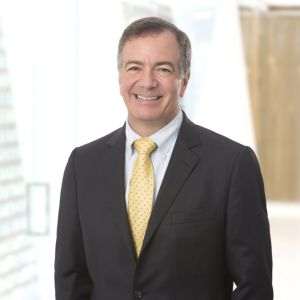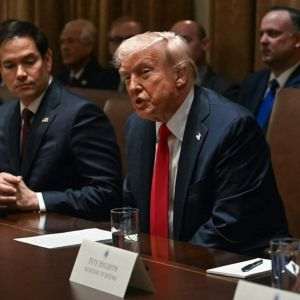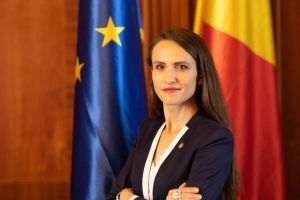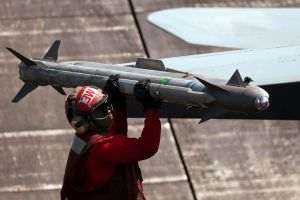President Klaus Iohannis declared, yesterday, from the rostrum of the European Parliament that the court decided that the Financial Supervisory Authority is right in the case of Euroins, after he had been questioned on this issue by two MEPs, Gunnr Beck and Clare Daly.
Klaus Iohannis said: "The rule of law also implies better institutions and efficient regulatory authorities. I hear here that a regulator had a problem with a company. As it is everywhere, in any rule of law, if a company is dissatisfied with a decision, it goes to court. I understood that in this case the court said that the decision of the regulatory authority was correct".
Previously, the two European deputies accused the ASF and the European authority - EIOPA - of removing the Euroins company from the insurance market in our country.
Gunnar Beck, deputy from the political group ID (Identity and Democracy) said: "The insurance sector in Romania is experiencing problems, many of the companies being removed from the market in the last 12 years. We recorded 12 failures that should have caused concern to the regulatory authority in a Member State. In 2019, the ASF asked a company to acquire a state-owned company, and a few years later it suspended the authorization of the activity and imposed very strange measures. We are talking about one of the biggest insurers in Romania that had to cease its activity last year. EIOPA - the regulatory and supervisory authority at European level - has told me that it has not received any report on the company in question and that I am not allowed to have access to the subsequent report. What are EIOPA and ASF trying to hide about that company? I ask this because, after the decision to withdraw the license, the ASF granted a license to Superbet, a company whose president is one of Mrs von der Leyen's brothers".
His speech was continued by Deputy Clare Daly, member of the Left political group in the European Parliament who said: "There are questions that have not yet found their answer regarding the way in which the ASF operates, an institution that has an impact not only on drivers, but also at European level. We asked several months ago about the decision to withdraw the license of Euroins Romania, a company that is part of the largest insurance group in Central and Eastern Europe. It is very strange that the regulatory authority in Romania acted against this company three years after the question marks were raised. Why? Well, the European Bank for Reconstruction and Development should have seen what is happening there and the approach of the European authorities who made a report and issued some warnings as well as solutions to mitigate the impact, but nothing was done.; your country is now exposed to a court action worth 500 million euros, which will probably have other effects. EIOPA should have intervened, but it failed to even give the members of the European Parliament the report it drew up. This situation worries me a lot about what happened there, and that's why I'm asking the European Commission to open an investigation into this case."
We mention that last year, on April 27, the Bucharest Court of Appeal upheld the decision of the ASF to lift the authorization of Euroins Romania, and following this decision, in June the Bucharest Court opened the bankruptcy procedure for the respective company. Against the sentence of the Court of Appeal, Euroins Romania appealed to the High Court of Cassation and Justice, an appeal which was rejected by the Supreme Court as unfounded by the decision of January 11, 2024.
We show that the intervention regarding Euroins took place during the "This is Europe" debate, which took place in the plenary session of the European Parliament and whose special guest was Klaus Iohannis.
• Klaus Iohannis: "The EU is facing an erosion of values"
The European Union is facing an erosion of values, Klaus Iohannis said during the speech he gave in the debate in the European Parliament.
President Iohannis stated: "We are indeed facing an erosion of values at the level of the European Union, which feeds the perception of decline that some have about Europe or, at least, about Europe's leadership and global role . That is why we need to do more to promote the feeling - and the certainty - that we are all part of the same community of values, which must be protected by each of us. What can we do and what must we do as a Union? Current challenges push us towards a transformative rethinking of our actions. The last few years have proven that our joint action, as a whole, as a true Union, is essential. Our unit was tested repeatedly and did not budge. More than that, this was a strategic surprise for some and brought us tactical advantages. We should build on this foundation. (...) Strengthening our internal resilience is a fundamental condition for a stronger Union and for its increased geopolitical role".
The head of state also said that in addition to the erosion of values, he found a crisis regarding the public's trust in the European institutions and specified that the European parliamentary elections from June 6-9 will represent a milestone for the reconstruction of this trust and a start for the modification of the architecture of the European Union.
Klaus Iohannis added: "I think three things must be changed. The first concerns our relationship with European citizens. My impression is that we are a bit higher than the citizens and we should close this gap. What we are doing is right, but we have lost our ability to explain to people what we are doing. It is a communication problem between voters and politicians. Secondly, we need to improve the architecture of the European Union, which by welcoming new members will become wider, and the decision-making process must be fair, transparent and fast in times of crisis or war. That is why some aspects require an amendment of the treaties. (...) It is not acceptable for one member to use his veto to stop us all from making a decision. We should have the courage to say that we have no veto in the decision-making process. (...) Thirdly, it is strange that we do not have a single foreign policy; we have more foreign policies than the member states of the European Union. Perhaps this is the reason why the EU's role in global foreign policy is much smaller than its economic role. This is not profitable for the EU because economic policy has to be duplicated or supported by foreign policy".
As for the relationship between politicians and citizens, President Iohannis showed that the too great distance between them has led to turmoil in the Union, the latest example being the farmers' protest regarding the common agricultural policy.
Klaus Iohannis said: "The decisions regarding the common agricultural policy were taken in 2020, before the pandemic. Nota bene: we are in 2024. Why did it take four years to have massive farmers' protests in almost the entire European Union to realize that some concepts need to be re-discussed? It took us four years to realize, after massive protests, that certain things must be renegotiated with the farmers. It's just an example of how we are often too far removed from the interests of the people we ultimately want to help do their jobs. On the other hand, there are undoubtedly also strategic issues related to the concept of the European Union, which we must deal with as soon as possible, the better. The internal functioning of the Union must become more efficient, more fluid, faster. So the architecture of the Union needs to be improved. The Union must expand - that's my opinion. We need to include Moldova, Ukraine, the Western Balkans. They want to be part of the Union, we want them to be with us. Why have these discussions lasted for some already 20 years? So we have to be more determined, more applied here as well".
President Iohannis also said that the European bloc must deliver policies to support future generations and added: "Future generations look to us with hope and optimism in geopolitically volatile times and marked by socio-economic difficulties. Europe's future depends on the Union's ability to give them honest answers and deliver concrete results in terms of education, health, prosperity, climate security and employment opportunities."
Regarding education, he showed that more than 600,000 students from our country have benefited from the Erasmus program financed from the European Union budget, a program through which they were able to learn about European values and see the lifestyle of other states of the Union.
In his speech, Klaus Iohannis also referred to the need for our country's full accession to the Schengen free movement area: "The Union means an area of safety, protection, prosperity and diversity. The European Union remains, par excellence, an area of free movement. The lifting of controls at the air and sea borders in March must naturally be followed in the shortest possible time by the removal of controls at the land borders. Only in this way will we have the correct and concrete reflection of the contribution that Romania brings to the consolidation of the security of the entire Union".
• Adherence to the Schengen area, a necessity
The speech of President Klaus Iohannis was appreciated by the European deputies present at the debate, most of them supporting that our country and Bulgaria must be accepted in Schengen and with land borders, because they fulfill membership criteria for a very long time.
Manfred Weber, the president of the European People's Party stated: "For the EPP there is no doubt that Romania must enter Schengen with full rights; you have been preparing for this for 13 years. Romania and Bulgaria must enter Schengen, because it is good for the entire European community, for the business environment, but also for the citizens".
The president of the popular Europeans specified that our country is a real success story after joining the EU, that Romania has become the second most important economy in Eastern Europe, being an attractive state for investments, which is reflected in the large number of start-ups established and in the technological hubs created, of which he mentioned the one in Cluj-Napoca.
Juan Fernando Lopez-Aguilar, European deputy from the Alliance of Socialists & Democrats reminded that at the end of last year, under the Spanish presidency of the Council of the European Union, the member states approved that our country and Bulgaria enter the Schengen area with air and sea borders on March 31 . : Under Spanish headquarters, air and sea border restrictions regarding the Schengen area for Romania and Bulgaria have been lifted. Roma were in the front line regarding the people displaced from Ukraine after the war. At least 3 million women and children entered the EU through the border with Romania.
Valerie Hayer, president of the Renew Europe political group, brought up the fact that this year our country has four rounds of elections - European parliamentary, local, parliamentary and presidential, and showed that they must once again reflect the fact that Romania is anchored in European values and that they are guided by the values of the rule of law and the principles that underlie the EU.
"We note with sadness that more and more foreign interference is visible on European territory, and that is why I believe that we must effectively combat both cyber attacks and online disinformation, which can leave their mark on this year's electoral processes." Valerie Hayer also said.
• Accusations against the European Commission from the Romanian deputies
During the debate, most of the MEPs from our country - except for those from the PNL/EPP - criticized the European Commission on several aspects, starting from the vaccinations during the pandemic and reaching the current dissatisfaction of farmers.
Maria Grapini, Vice-President of the Internal Market and Consumers Committee of the European Parliament said: "Do you really like the way Europe looks now? Do you think more could have been done? Is there social equity and the single market these days? I don't think it's a single market, but we have to fight for it. Romania is not in the internal market, because it is not in Schengen. (...) The Common Agricultural Policy is not fair because farmers in all EU member states are not rewarded in the same way".
For his part, deputy Cristian Terheş, who is the head of the list for the European parliamentary elections from the AUR side, said: "Before talking about what Europe is, we must look to see what Europe was and see if the new direction has something in common with the initial approach. Mrs. von der Leyen said that the European project is based on Roman law and Greek law, but she forgot to mention Judeo-Christian values, which are found in European and international treaties. Democracy owes its existence to Christianity which teaches us that we are all equal, said Robert Schumman, one of the founders of the EU. It is incomprehensible why these individual liberties are being violated in recent years by the Commission headed by Mrs von der Leyen. (...) Governments cannot impose medical products in people's bodies, people are free to choose, but people were forced to vaccinate during the pandemic. The erosion of these fundamental rights, even by the European institutions, represents a betrayal of our common values".
European deputy Nicu Ştefănuţă, member of the political group of the Greens in the European Parliament said: "Today we are talking about the future of Europe and the future of Romania. The reality is not exactly the one described by President Iohannis: a lot of Romanians are still leaving the country, we have no new hospitals and we have a poor population. Millions of young people do not know what they hope for the future. To defeat populism, democracy and the good life must go together. What Romania are we leaving behind for our young people, what Europe are we leaving for them? Let's put the future of young people at the heart of politics; they need to be heard, helped. Young people do not want to live in a country with the extreme right in power; that's why I ask you not to let a fascist government lead Romania. Our country must ensure that it does not allow Russian agents to make politics for the Romanian people".
Former prime minister Dacian Cioloş, European deputy from Renew Europe stated that 2024 year is crucial for the European Union, as its values are under siege by extremism and disinformation. That is why he believes that the authorities in Bucharest and those at the European level must watch to ensure the membership of Romanian citizens in the European Union, given that Romania has become an eastern pillar of the EU bloc and of NATO. Dacian Cioloş stated: "Romanians have the feeling that political leaders no longer talk to them enough or do it too little. Farmers, young people without perspective and isolated citizens from small towns must be motivated to find themselves in structures that bring them closer to European values".
Vlad Botoş, member of the Internal Market and Consumers Committee (IMCO) of the European Parliament showed that our country has received over 90 billion euros since joining the EU and that politicians must be aware that they are not above the rules imposed by European and national legislation.
European deputy Tudor Ciuhodaru stated that while national and European leaders are preoccupied with global crises and solutions, they have forgotten ordinary citizens and lost touch with those they represent.
Mr. Ciuhodaru stated: "The grievances of Romanians are increasing and are related to daily life. The Commission and the Council often ignored Romania's interests, which were trampled on. That's why I think we need to reconnect with people's problems".
Lorant Vincze, European deputy from the UDMR, was also dissatisfied, who accused President Klaus Iohannis that during the 10 years of his presidential mandate he was not concerned with achieving a majority-minority pact, a fact that left room for the development of extremist parties in the country Our.
Siegfried Mureşan, the vice-president of the EPP said: "A united Europe can offer solutions and help people. Romania chose the pro-European path and we see today that Romania believes in Europe and Europe believes in Romania. Together we managed in recent years to create the largest post-pandemic support package and we also supported Ukraine. In the future, our task is to defend Europe, which means freedom, democracy, rule of law, security".
• Klaus Iohannis: "The choice for the EU leadership must be made taking into account the regional criteria"
The choice of the future management team of the European Union should be made taking into account the regional criteria, President Klaus Iohannis declared yesterday, during a press conference he held with Roberta Metsola, the President of the European Parliament, before the "This is Europe" debate.
Klaus Iohannis stated: "I think that in 2019 a mistake was made. All the relevant positions were filled by very competent people, that's not the point, from old Europe. It's one of the reasons why so many Eastern Europeans feel a bit left out. It is an error and I hope that after the elections of June 6-9, 2024 this error will not occur again. It would be good for the Union to understand that the choice for leadership must be made taking into account the regional criterion as well. These issues should never be neglected, because they would deepen some faults that, we prefer, to be closed".
He qualified as "inadmissible" the outcome in which, after the elections for the European Parliament, none of the key management functions of the EU institutions would go to a person from Eastern Europe.
President Iohannis stated: "I don't think it's the time to speculate. I am the president of Romania, I am a member of the European Council, where after the European elections all these positions will be discussed, but it would be inadmissible that no position is occupied by a person from the new member states, i.e. from the eastern part".
We remind you that following the 2019 European Parliament elections, Ursula von der Leyen was proposed for the head of the European Commission, Christine Lagarde for the head of the European Central Bank, Josep Borrell for the position of High Representative of the European Union, and Charles Michel was elected president of the European Council . Until now, the European Council has had three permanent presidents, all former prime ministers of their countries: the Belgian Herman van Rompuy, the Polish Donald Tusk and the Belgian Charles Michel.

























































